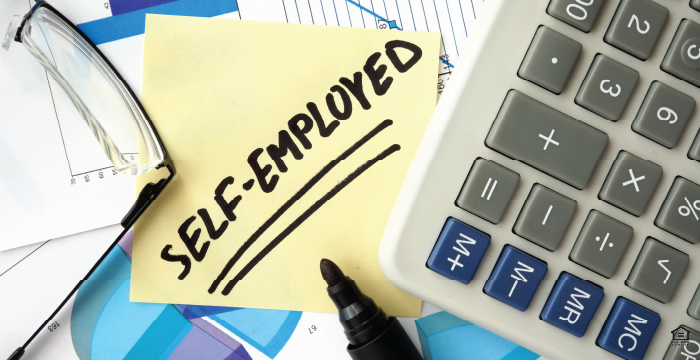
3 Things Self-Employed People Need to Know When Securing a Mortgage in 2021

The term self-employed includes those that own 25% or more of any business entity, corporation, LLC, etc., even if you are a W2 employee of your corporation. In addition, if you receive your income on Form 1099 and report your income on Schedule C, which includes independent contractors, realtors, insurance professionals, etc., you would be deemed self-employed.
Effective December 14, 2020, Fannie Mae and Freddie Mac updated their guidelines for self-employed individuals as seen on the Fannie Mae Bulletin 2020-03.
1. Tax Return Requirements
Self-employed borrowers must supply the following in regards to their tax returns:
- Two years of most recent federal tax returns (Form 1040)
- Two years of most recent W2 forms
- Two years of most recent business federal tax returns if you own 25% or more of an entity, along with corresponding K1s
2. Profit and Loss Statements
Self-employed borrowers will also need to provide a 2020 profit and loss statement, assuming the borrower’s 2020 personal and business tax returns have not been filed. It’s important to note that a year-to-date profit and loss statement (P&L) may also be required for 2021.
The ending period of your P&L must be dated within 60 days prior to the note date. For example, a December 31, 2020 P&L loan must close by the end of February. As the year progresses, P&Ls for portions of 2021 will be required.
The P&L can be prepared by the borrower or a financial professional but must be signed and dated by the borrower.
3. Business Bank Statements
The latest change that came from the recent Fannie Mae update is that self-employed borrowers are now required to provide three months of recent business bank statements instead of the previously required two.
After a self-employed borrower has provided their business bank statements, underwriters will compare current deposits to historical gross revenue to determine consistency levels.
Personal bank statements are acceptable if the borrower does not have a business bank account. Requirements for personal statements include:
- All deposits must be specifically identified to determine which were personal and which were business-related.
- A “reasonability test” applies: personal bank statements are only acceptable for smaller businesses; larger businesses with significant income on business tax returns are not eligible to use personal bank statements.
It’s beneficial to ensure that the deposit history on your business bank accounts and your P&L statement are consistent with previous years’ business performance to support the approval of your mortgage.
If your business profit and revenues declined, additional documentation may be required to determine a self-employed person’s eligibility in obtaining a mortgage.
On a positive note, the new update has also determined that expenses are no longer required to be validated against the bank statements.
At NJ Lenders Corp, 30% of our borrowers are self-employed. Reach out today to receive a complimentary financial analysis for your individual financial situation.